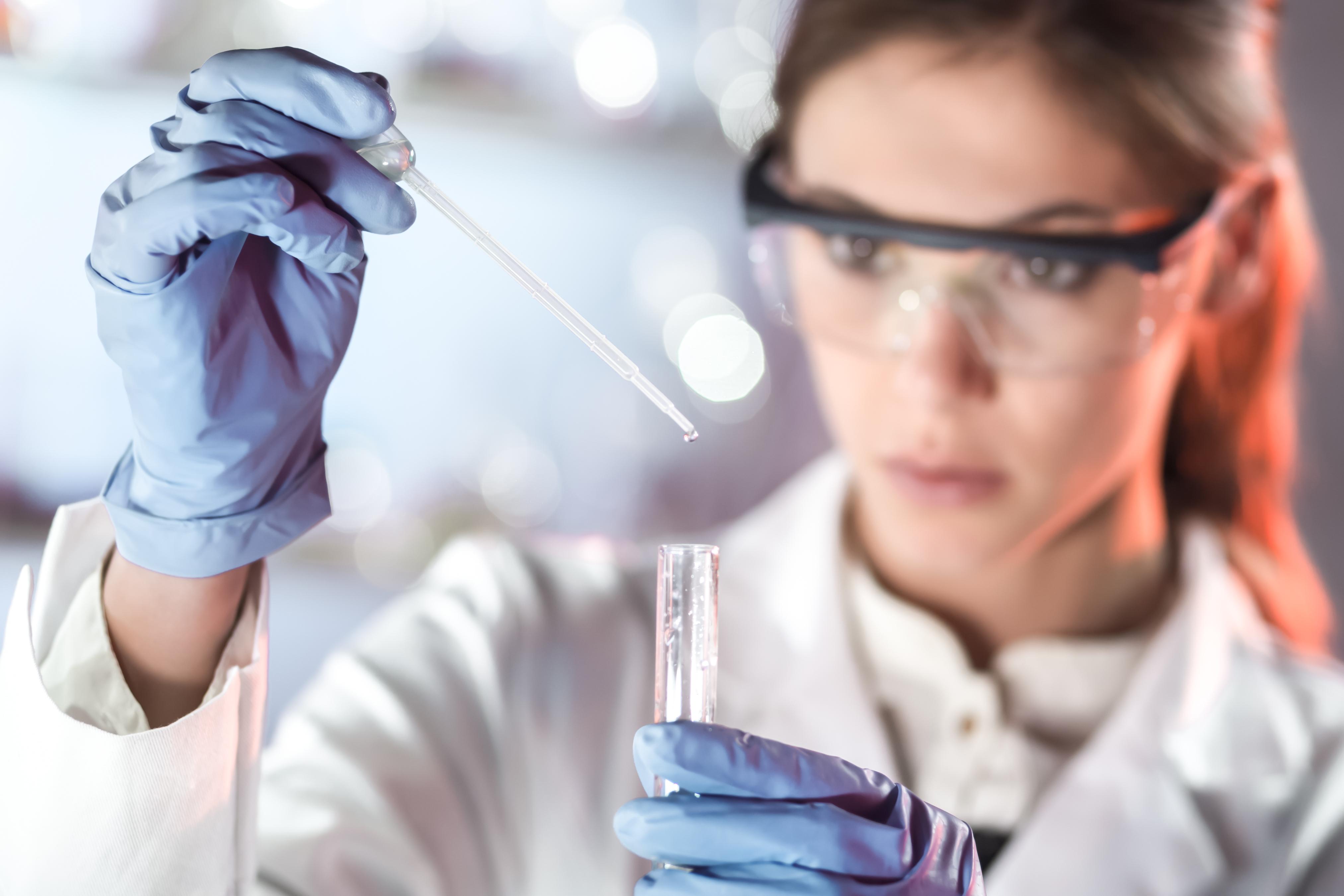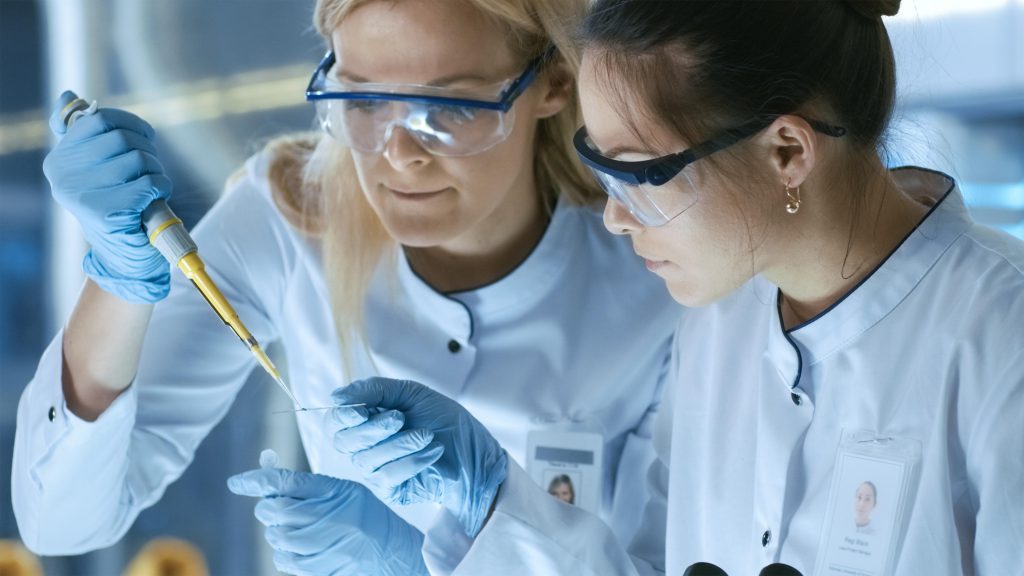
At St. Thomas University, we have six types of biology-related degrees. Why so many? We want to make you more competitive. With our specialized programs, you’ll have the edge – whether you’re competing for a job or applying to medical school or graduate school. Let’s take a closer look at our five types of biology degrees, so you can see which one matches up with your career goals.
Bachelor of Science (BS) in Biology
The Bachelor of Science (BS in Biology) at St. Thomas University provides our students with the skills and knowledge necessary to pursue careers in the biological sciences or medical professions, or to apply to veterinary school or other graduate programs. There are two types of biology degrees for undergraduates. You can specialize in biological research or pre-professional studies.
What You Will Learn
Our program emphasizes strong foundations in biology with practical laboratory skills. Students will have the opportunity to use modern sophisticated equipment in our teaching laboratories and work closely with faculty conducting original cutting-edge research. With our small class and laboratory size, we ensure that our students are well trained in the latest techniques needed by today’s scientists.
What You Can Do
Approximately 25% of our graduates continue their education at the postgraduate level, often in Biomedical Sciences, Medicine, Veterinary, Dental, and Physical Therapy. Students are also well prepared for jobs in the healthcare, biomedical, agricultural, environmental, and pharmaceutical sectors.
Bachelor of Arts (BA) in Natural Sciences
The Bachelor of Arts (BA in Natural Sciences) at St. Thomas University allows our students to integrate courses from different science fields to match their personal and professional career goals. It provides students with skills in scientific analysis, research, communication, and documentation related to the natural sciences.
What You Will Learn
Our program emphasizes the interrelationships among the several natural science disciplines, including biology, chemistry, data science, and bioethics while at the same time offering an interdisciplinary approach to problem-solving by including courses in education, professional communication, and other disciplines.
What You Can Do
This program provides science preparation that can be applied to careers such as a scientist, biologist, laboratory technician, educator (elementary or high school teacher in earth sciences, environmental sciences, etc.), environmental studies, park and zoo-related employment or manager, or can be the first step to pursue higher-level graduate studies in the natural science fields.

Our biology programs offer small class sizes of fewer than 20 students. This approach allows our faculty to provide personal attention to our students in the classroom and in the laboratory.
Master of Science (MS) in Bioethics
Bioethics is the study of ethical issues that emerge from biological, environmental, medical and technological advances. Our Master of Science in Bioethics helps graduates develop the moral discernment necessary to guide medical and environmental policy and practice. This interdisciplinary program can be completed in 16 months. It’s designed in a blended format, with both online and on-campus coursework. Students also choose an internship in their area of interest and can be involved in ongoing research in our native slash pine forest ecosystem on campus.
What You Will Learn
Contemporary bioethics may be grouped into four key areas: bioethical issues at the beginning and at the end of human life, healthcare bioethics, and environmental bioethics. Our curriculum touches on each, providing both foundational knowledge and the opportunity to apply the concepts in real life. Coursework includes:
- Fundamentals of Catholic Bioethics
- Responsible Research and Professional Conduct
- Beginning of Human Life Bioethics
- End of Human Life Bioethics
- Human Population and Environmental Bioethics
- Data Analysis and Probabilities
- Healthcare Services Bioethics
What You Can Do
With the Master of Science in Bioethics, you could build your career in a variety of settings, including health and veterinary care, pharmaceutical companies, biotechnology firms, academic institutions, institutional review boards, oversight/compliance boards, policy organizations, grant review boards, parks and wildlife management, pastoral settings, or think tanks.
Master of Science (MS) in Biology for STEM Educators
To meet the urgent national priority of educating future Science, Technology, Engineering, and Mathematics (STEM) professionals, St. Thomas University has created the Master of Science in Biology for STEM Educators. Designed for working adults, you can finish in 15 months, but it’s self-paced for flexibility. The program is also blended, featuring both online and on-campus laboratory assignments, research projects, and a capstone project.
What You Will Learn
This practical program helps working middle and high school teachers strengthen and broaden their STEM content knowledge, expand their skills through up-to-date laboratory exercises and scientific research, and gain experience utilizing or developing hands-on STEM instruction.
What Can You Do
Upon completion, you’ll have a master’s degree and 18 graduate hours in the field of biology. Graduates will be qualified to teach dual enrollment biology courses in high schools as well as lower-level college/university courses in biological sciences. Typically, a teacher with a Bachelor’s degree who earns a Master’s degree will qualify for a pay raise in the public school system.
Master of Science (MS) in Cell and Molecular Biology
Our Master of Science in Cell and Molecular Biology has a dual purpose. Students gain a solid foundation in cell and molecular biology along with a curriculum specifically designed to prepare them for applying to Dental, Veterinary, Optometry, and Ph.D. and Master’s level Life Sciences schools (thesis-based). This one-year, non-thesis program includes required seminar and elective classes, plus work experiences (shadowing or research) for credit.
What You Will Learn
You’ll receive a rigorous base of knowledge in the fundamental principles of cell and molecular biology. In addition to a biology seminar, journal club, and two separate field experiences, students will take coursework in cellular and anatomical neuroscience, cell and molecular biology, statistical methods, pharmacology, developmental biology, and bioethics.
What You Can Do
Training in cell and molecular biology is essential for careers in, pharmacology, biochemistry, virology, immunology, developmental biology, and within a number of high-tech industries. You can also apply with confidence to a professional school (such as dental, or veterinary schools), knowing that you’ll be prepared and competitive.
Master of Science (MS) in Medical Science
The new Master of Science (MS) in Medical Science is uniquely designed to boost your chances of being accepted to an MD program such as Doctor of Osteopathic Medicine (DOM), Doctor of Chiropractic Medicine (DCM), Doctor of Podiatric Medicine (DPM) and Doctor of Physical Therapy (DPT). It will also give you a head start in medical school. This interdisciplinary program takes place over three semesters, culminating with a comprehensive qualifying exam.
What You Will Learn
We provide students with the medical science curriculum necessary to improve MCAT test scores and prepare for USMLE board exams. Our program includes courses in Anatomy, Biochemistry, Histology, Microbiology, Neuroscience, Ethics, and Physiology – and also integrates virtual laboratory experiences to prepare graduates for the next step in their healthcare journeys.
What You Can Do
This degree program provides enhanced science preparation to become a strong candidate for admission to any professional degree program in the health field or medical sciences industry. In addition, the top 20% of St. Thomas University Master of Science in Medical Science graduates are offered an Admissions interview at Ponce Health Sciences University School of Medicine (PHSU). In order to qualify, students must apply for admission and adhere to all requirements.

If you want to pursue medical school, our new Master of Science in Medical Science can increase your chances of being accepted and/or supplement your undergraduate records with enhanced science preparation.
Regardless of which program you choose, you’ll have the right resources at your fingertips. We spared no expense when constructing our science building and laboratories. In recent years, STU has invested over 20 million dollars in the building and labs as well as five million in professional top-grade scientific equipment. Not only that, we have an extensive network of alumni who go to great lengths to help fellow scholars in our School of Science Technology and Health (STEM).
Would you like to learn more about the types of biology degrees available at STU? Contact our admissions team for more information.

